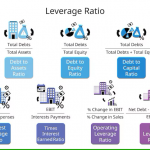Even the most reputable companies can fall from grace when they employ aggressive financial tactics. “When Good Companies Go Bad: How Aggressive Financial Tactics Can Backfire on Corporate Giants” delves into the dangers of this high-risk approach. With a focus on the implications for both companies and their stakeholders, this article examines real-life examples of industry giants who have succumbed to their own hubris.
By pushing the boundaries, these companies often attract attention and generate short-term gains, but at what cost? This eye-opening exploration reveals the long-term consequences of these tactics, from tarnished reputations to legal ramifications. As readers, we have the unique opportunity to understand the patterns that lead to downfall, potentially allowing us to identify warning signs in the businesses we interact with daily. By learning from the mistakes made by these corporate giants, we can better protect our investments and make informed decisions.
Don’t miss this insightful article that uncovers the hidden dangers behind reckless financial strategies and reminds us that even the most successful companies are not immune to their own demise. As we delve into the examples and case studies, we’ll gain a deeper understanding of the importance of ethical practices in corporate finance and the role of stakeholders in holding companies accountable.
Examples of Aggressive Financial Tactics
In the pursuit of growth and profitability, some companies have resorted to aggressive financial tactics that push the boundaries of legality and ethics. These tactics often involve complex financial engineering, creative accounting, and a disregard for the long-term implications of their actions.
One common tactic is the use of off-balance-sheet financing, where companies move debt and liabilities off their books to present a more favorable financial picture. This can include the creation of special-purpose entities (SPEs) or the use of complex derivatives to obscure the true nature of a company’s financial position. Another tactic is the manipulation of revenue recognition, where companies may prematurely book sales or engage in “channel stuffing” to inflate their top-line numbers.
Additionally, some companies have been known to engage in aggressive tax avoidance strategies, utilizing loopholes and offshore havens to minimize their tax burden. While these tactics may provide short-term financial benefits, they often come at the expense of transparency and ethical practices, ultimately putting the company and its stakeholders at risk.
The Short-Term Benefits and Long-Term Consequences of Aggressive Financial Tactics
The allure of aggressive financial tactics lies in their ability to deliver immediate results, often in the form of higher stock prices, increased shareholder returns, and enhanced executive compensation. Companies that employ these tactics may experience a surge in stock prices, as investors are drawn to the promise of rapid growth and impressive financial metrics.
However, this short-term success often comes at a significant cost. The long-term consequences of these tactics can be severe, including legal and regulatory scrutiny, reputational damage, and the erosion of trust among stakeholders. When the truth eventually comes to light, the fallout can be catastrophic, with companies facing hefty fines, lawsuits, and even criminal charges.
Furthermore, the impact of these tactics extends beyond the company itself, affecting employees, customers, and the broader community. Job losses, reduced customer confidence, and the erosion of shareholder value can all be the result of a company’s aggressive financial practices. The ripple effects can be felt throughout the industry and the economy, serving as a cautionary tale for other organizations tempted to follow a similar path.
The Impact on Stakeholders: Employees, Customers, and Shareholders
When companies engage in aggressive financial tactics, the consequences extend far beyond the boardroom, impacting a wide range of stakeholders. Employees, who are often the backbone of an organization, can find themselves caught in the crossfire, facing job insecurity, reduced benefits, and damaged morale.
Customers, who place their trust in the companies they do business with, may feel betrayed when the truth about a company’s financial practices comes to light. This can lead to a loss of brand loyalty, decreased sales, and a tarnished reputation that can take years to rebuild.
Shareholders, who have entrusted their capital with the expectation of responsible management and sustainable growth, are perhaps the most directly affected by aggressive financial tactics. They may face significant losses as stock prices plummet, dividends are cut, and the value of their investments diminishes. The breach of trust can be particularly damaging, as shareholders may be reluctant to invest in the company again, even after it has attempted to rectify its mistakes.
The corporate world is rife with stories of once-prominent companies whose aggressive financial strategies led to devastating consequences. From accounting scandals to over-leveraging, many businesses have faced backlash for the risks they took in pursuit of short-term profits and rapid growth. In this analysis, we’ll delve into comprehensive case studies of companies that pushed the limits of financial tactics—sometimes stepping into the realm of fraud—only to suffer spectacular falls from grace.
Case Studies of Companies That Have Faced Backlash from Aggressive Financial Tactics
Two of the most notorious cases in modern corporate history are Enron and WorldCom, but there are several others worth mentioning. By examining these cases, we can learn crucial lessons about the dangers of financial manipulation and the importance of transparency and accountability.
1. Enron: The Energy Giant Brought Down by Creative Accounting and Fraud
The Rise of Enron:
Enron was once hailed as an innovative energy company that revolutionized energy trading and pioneered new markets. Founded in 1985 through the merger of two natural gas companies, Enron evolved from a traditional energy supplier into a global leader in energy commodities, including natural gas, electricity, and even broadband. Under the charismatic leadership of CEO Kenneth Lay and later Jeff Skilling, Enron pushed for deregulation of the energy markets and expanded into new, seemingly lucrative ventures.
The Aggressive Financial Tactics:
Enron’s downfall was rooted in its aggressive use of off-balance-sheet financing and special-purpose entities (SPEs) to obscure the true state of its financial health. Essentially, the company was able to hide its burgeoning debt by shifting liabilities to these off-the-books entities, allowing it to present itself as far more profitable and stable than it actually was. Enron also engaged in mark-to-market accounting, a practice that allowed them to record projected profits from long-term contracts as immediate revenue. This inflated their financial performance on paper, even when those contracts hadn’t yet materialized into cash flow.
The Collapse:
Eventually, these dubious tactics caught up with the company. In 2001, reports began to emerge that Enron’s financial practices were built on a foundation of deception. The company had over $30 billion in debt hidden from investors, and its stock price—which had once peaked at $90 per share—plummeted to less than $1. In December 2001, Enron filed for bankruptcy, and it became the largest corporate bankruptcy in U.S. history at the time. The fallout was catastrophic: shareholders lost tens of billions, and thousands of employees lost their jobs and pensions.
The Aftermath:
Enron’s collapse prompted widespread regulatory reforms, most notably the Sarbanes-Oxley Act of 2002, which was designed to increase transparency in financial reporting and hold executives more accountable for the accuracy of their company’s financial statements. Kenneth Lay and Jeff Skilling were both convicted of multiple federal crimes, including securities fraud and conspiracy. The Enron scandal remains a powerful symbol of the dangers of unchecked corporate greed and the disastrous effects of financial manipulation.
2. WorldCom: The Telecommunications Giant that Manipulated Its Financials
The Growth of WorldCom:
WorldCom, once a telecommunications giant, was born from a series of aggressive acquisitions throughout the 1990s, eventually becoming the second-largest long-distance telephone service provider in the United States, behind AT&T. Led by CEO Bernie Ebbers, the company expanded rapidly through debt-fueled mergers, including the $37 billion acquisition of MCI Communications, which at the time was one of the largest acquisitions in U.S. history.
The Aggressive Financial Tactics:
While WorldCom’s growth strategy was initially lauded for its ambition, it soon became apparent that the company was overstretching itself. Under intense pressure to meet investor expectations, WorldCom executives, led by CFO Scott Sullivan, began to engage in accounting fraud to maintain the appearance of profitability. Specifically, the company used a technique known as capitalizing operating expenses—reclassifying billions of dollars in ordinary expenses (such as network maintenance costs) as capital expenditures. This allowed WorldCom to spread these costs over several years rather than recognizing them immediately, artificially inflating its earnings by billions of dollars.

The Collapse:
In 2002, internal audits and whistleblower testimony exposed the fraud. WorldCom admitted to overstating its profits by more than $11 billion, resulting in what was then the largest corporate bankruptcy in U.S. history. Like Enron, WorldCom’s stock became worthless almost overnight, and thousands of employees lost their jobs.
The Aftermath:
Bernie Ebbers was convicted of securities fraud and conspiracy and sentenced to 25 years in prison, though he was later released in 2020 due to declining health. The collapse of WorldCom further spurred calls for tighter corporate governance and financial reporting regulations. The scandal underscored the dangers of prioritizing short-term stock performance over long-term financial health and the importance of independent auditing.
3. Valeant Pharmaceuticals (Now Bausch Health): The Pharmaceutical Giant’s Reckless Pursuit of Growth
The Growth of Valeant:
Valeant Pharmaceuticals was known for its strategy of aggressively acquiring other companies and cutting costs, rather than investing in research and development. Under CEO Michael Pearson, Valeant embarked on a spree of acquisitions, buying dozens of smaller pharmaceutical firms, which allowed it to quickly grow its market value. This strategy, however, relied heavily on debt and aggressive price hikes on acquired drugs.
The Aggressive Financial Tactics:
Valeant used a controversial business model that centered on slashing costs and raising drug prices after acquisitions. In some cases, drug prices were increased by as much as 1,000%. The company also employed accounting gimmicks, including using specialty pharmacies to artificially inflate sales figures. By routing its products through a network of pharmacies it secretly controlled, Valeant was able to manipulate revenue reporting and hide poor sales performance.
The Collapse:
In 2015, reports began to surface that Valeant was engaged in unethical practices, including price gouging and manipulating its financials through shady accounting practices. The company’s stock collapsed, losing over 90% of its value, and Pearson was forced to resign. Valeant’s reputation was severely damaged, and it was forced to rebrand as Bausch Health in an attempt to distance itself from the scandal.
The Aftermath:
Valeant’s aggressive financial tactics left the company saddled with debt, and its reputation among both investors and consumers was in tatters. It became a cautionary tale about the risks of prioritizing rapid growth and shareholder value at the expense of ethical practices and long-term sustainability.
4. Tyco International: Lavish Spending and Accounting Fraud in the Corporate Suite
The Rise of Tyco:
Tyco International was a conglomerate that manufactured everything from electronics to healthcare products, growing exponentially in the 1990s through a series of acquisitions. CEO Dennis Kozlowski, known for his flamboyant lifestyle, presided over the company’s aggressive expansion and seemingly unstoppable growth.
The Aggressive Financial Tactics:
Behind the scenes, Tyco’s leadership engaged in rampant fraud, using the company as a personal piggy bank. Kozlowski and other executives siphoned hundreds of millions of dollars from Tyco in unauthorized bonuses and benefits. They concealed these thefts through accounting manipulations, falsely reporting the company’s earnings and misusing corporate funds for lavish personal spending—including a now-infamous $2 million birthday party in Sardinia.
The Collapse:
In 2002, Kozlowski and CFO Mark Swartz were indicted for securities fraud, larceny, and falsifying business records. It was revealed that they had looted nearly $600 million from the company. Tyco’s stock price plummeted, and the company was forced to pay billions to settle lawsuits from defrauded shareholders. Kozlowski was sentenced to up to 25 years in prison.
The Aftermath:
Tyco survived the scandal but had to restructure and divest several of its key business units. The company’s story serves as a classic example of how corporate greed and unchecked executive power can destroy even the largest and most diversified conglomerates.
The Role of Corporate Governance in Preventing Aggressive Financial Tactics
The prevalence of aggressive financial tactics underscores the critical importance of robust corporate governance practices. Effective corporate governance, with a focus on transparency, accountability, and ethical decision-making, can serve as a bulwark against the temptation to engage in high-risk financial tactics.
A strong board of directors, with a diverse range of expertise and independent oversight, can play a crucial role in monitoring and challenging management’s decisions. By fostering a culture of integrity and risk awareness, the board can help ensure that the company’s financial practices align with its long-term strategic objectives and the interests of all stakeholders.
Additionally, the implementation of rigorous internal controls, auditing procedures, and whistleblower protection mechanisms can help identify and address potential issues before they spiral out of control. By empowering employees to speak up and report any suspected wrongdoing, companies can create an environment where ethical practices are the norm, rather than the exception.
The Importance of Transparency and Accountability in Corporate Finance
Closely tied to the role of corporate governance is the need for transparency and accountability in corporate finance. When companies engage in aggressive financial tactics, they often do so at the expense of transparency, obscuring the true nature of their financial position and making it difficult for stakeholders to make informed decisions.
Transparency is essential for building and maintaining trust, as it allows stakeholders to understand the company’s financial health, risk profile, and long-term prospects. By providing clear and accurate financial reporting, companies can demonstrate their commitment to responsible stewardship of capital and foster a culture of openness and accountability.
Accountability, in turn, ensures that those responsible for the company’s financial decisions are held accountable for their actions. This includes not only the executives who make the decisions but also the board of directors, who have a fiduciary duty to oversee the company’s financial management. When there are clear consequences for unethical or reckless behavior, it can serve as a powerful deterrent against aggressive financial tactics.
The Role of Regulators in Preventing and Addressing Aggressive Financial Tactics
The responsibility for addressing aggressive financial tactics does not lie solely with the companies themselves. Regulatory bodies and government agencies also play a critical role in setting the standards, enforcing the rules, and holding companies accountable for their actions.
Regulators, such as the Securities and Exchange Commission (SEC) in the United States, have the power to investigate and prosecute cases of financial fraud, manipulation, and other illegal practices. By actively monitoring the market, issuing guidelines, and taking enforcement actions, regulators can send a clear message that aggressive financial tactics will not be tolerated.
Additionally, regulators can work to strengthen the legal and regulatory framework governing corporate finance, ensuring that companies are subject to rigorous reporting requirements, auditing standards, and disclosure rules. This, in turn, can make it more difficult for companies to engage in aggressive tactics and can provide stakeholders with the information they need to make informed decisions.
Rebuilding Trust and Reputation: Steps Companies Can Take to Recover from Aggressive Financial Tactics
When a company’s reputation has been tarnished by aggressive financial tactics, the road to recovery can be long and arduous. However, there are steps that companies can take to rebuild trust and restore their standing in the eyes of stakeholders.
The first and most critical step is to take full responsibility for the company’s actions, acknowledging the mistakes made and the harm caused. This means providing a transparent and comprehensive account of the events, cooperating fully with any investigations or legal proceedings, and making amends where possible.
Next, the company must implement sweeping reforms to its corporate governance and financial management practices. This may involve bringing in new leadership, revamping internal controls and auditing procedures, and establishing a robust whistleblower program. By demonstrating a genuine commitment to ethical practices and responsible stewardship, the company can begin to regain the trust of its stakeholders.
Conclusion: The Need for Ethical Practices in Corporate Finance
The cautionary tales of companies that have succumbed to the lure of aggressive financial tactics serve as a stark reminder of the importance of ethical practices in corporate finance. While the pursuit of growth and profitability is understandable, it must be balanced with a commitment to transparency, accountability, and long-term sustainability.
As we have seen, the consequences of aggressive financial tactics can be far-reaching, impacting employees, customers, shareholders, and the broader community. By understanding the patterns that lead to corporate downfall, we can better identify warning signs and make informed decisions about the companies we choose to support.
Ultimately, the responsibility for maintaining ethical practices in corporate finance lies not only with the companies themselves but also with regulators, policymakers, and the public. By working together to promote transparency, strengthen governance, and hold companies accountable, we can create a business environment that prioritizes integrity and long-term value creation over short-term gains.






